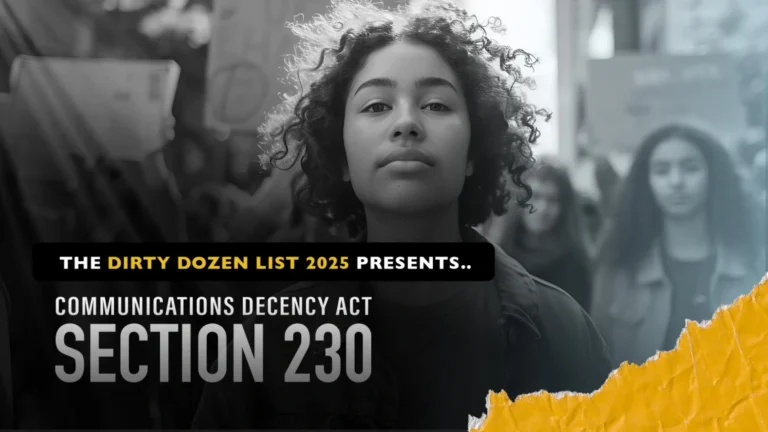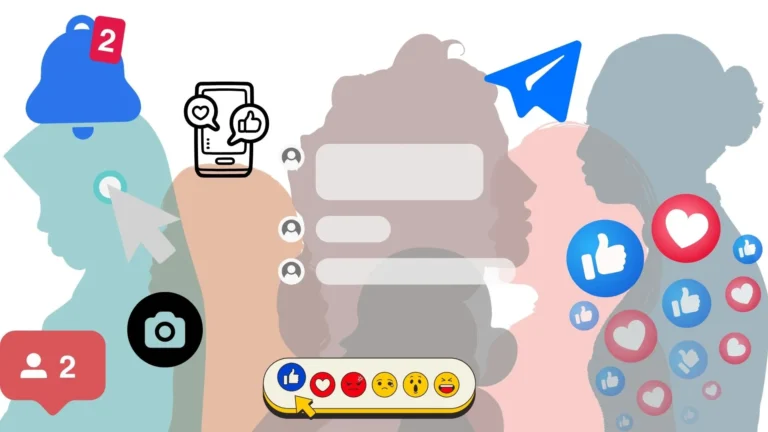The Thomas More Society filed suit on October 10, 2018 against EBSCO Information Systems and the Colorado Library Consortium on October 10, 2018 over their involvement in providing sexually explicit material in K-12 databases despite complaints by concerned parents and groups.
PRESS STATEMENT BY THE THOMAS MORE SOCIETY
Pornography Hidden in School Children’s Databases: Parents Sue Educational Tech Company
The Thomas More Society filed suit on October 10, 2018 against EBSCO, a nationwide corporation that embeds pornography in databases it markets to schools for use by unsuspecting school children for their homework and research. In the same suit, the Thomas More Society also sued the Colorado Library Consortium, a tax-supported nonprofit corporation that knowingly brokers EBSCO’s pornographic databases to schools and libraries throughout Colorado.
“This case is about two things: protecting children and calling out corporate deceit,” explained Thomas More Society Senior Counsel Matt Heffron.
“EBSCO gets schools to purchase databases by falsely promising the databases are age-appropriate and specifically tailored for elementary, middle, and high school children,” said Heffron. The Colorado Library Consortium has parroted and supported EBSCO in brokering these databases to schools, according to the suit.
But unknown to most parents, the databases are anything but safe or kid-friendly. They are riddled with easily accessible graphic pornography. And both EBSCO and the Colorado Library Consortium are well aware of it, according to the lawsuit.
“This is not the internet, as some school officials have falsely stated,” said Heffron. Instead, EBSCO controls and limits the content of its databases marketed to schools. The curated databases are simply initially accessed through the internet. “That control of the databases is why parents can expect the databases to be safe for their children at school,” he said. “They should not be infested with adult sexual fantasies.”
The lawsuit is filed under the Colorado Deceptive Trade Practices Act, under which it is illegal to make false claims to sell a product. “These databases definitely are not age-appropriate, nor can parents consider them reliable, as EBSCO claims,” said Heffron.
Heffron and the Thomas More Society are representing Pornography is Not Education, a Colorado group that includes parents who are “understandably outraged” at what they have discovered, said Heffron.
Parents in Aurora, Colorado initially discovered two years ago that EBSCO databases marketed for use by school children contained substantial amounts of easily accessible, hardcore pornography. And they discovered the EBSCO database system bypasses school internet filters and private, parent-supplied internet filters. Within the last year, the Aurora parents have been joined by parents and citizens in other Colorado counties.
In September 2018, the parents claimed a major victory after one of the largest school districts in Colorado, Cherry Creek, acknowledged it had discontinued purchasing or using any products from EBSCO. That development followed a two-year struggle with the parents … and just before the filing of a lawsuit against the school district by the Thomas More Society.
“We were happy Cherry Creek finally did the right thing,” said Dr. Robin Paterson, one of the parents most involved in the effort. “But EBSCO still is supplying its pornographic databases to school children in other school districts across Colorado. With this lawsuit being filed today, the other shoe has dropped. Now it’s time for EBSCO and the Colorado Library Consortium to do the right thing also.”
“EBSCO had plenty of chances to avoid a lawsuit,” said Paterson. “We tried to work with them for the last two years. So did the National Center on Sexual Exploitation. But all EBSCO was willing to do is put on a band-aid, not fix the problem.” Due to the materials discovered by the Colorado parents, the National Center on Sexual Exploitation named EBSCO to both its 2017 and 2018 “Dirty Dozen List” of the worst twelve corporations in America that perpetuate sexual exploitation.
Technology exists to allow EBSCO to exclude sexually explicit materials from the databases for school children, and it would be relatively inexpensive for a corporation as large as EBSCO to apply that technology, according to the parents’ lawsuit. EBSCO simply has decided not to use such technology, they say.
The lawsuit gives a sampling of what parents have found in their children’s school databases, provided by EBSCO and the Colorado Library Consortium:
- a “summer reading list” for children contained many erotic and BDSM (bondage, discipline, sadomasochism) stories, which could be located through as innocent a search as “romance;”
- an EBSCO database marketed to school children contained a full-text e-book entitled “Pornography in America: A Reference Handbook,” which contained live url links to a company hosting video pornography and promoting the pornography industry;
- benign searches for terms such as “robotics,” “girl’s stories,” “boy stories,” “grade 7 biology,” and “respiration” retrieved hyperlinks to “Lust,” “Bondage,” “Sex Toys,” and “Sexual Positions;”
- more than 100 different instances of advertising for one particular large-scale sex toy store;
- an allegedly teen website that advises children to use saran wrap to prevent sexually transmitted diseases.
“Children don’t have to be looking for porn,” said Paterson. “They can stumble into it in these EBSCO databases. Imagine how that might affect your grade schooler!”
“This case also is about corporations obeying the law,” said Heffron. “It is against the law to ply children with pornography. If the local convenience store or movie theatre can’t do it, why should EBSCO and the Colorado Library Consortium be allowed to get away with it?”
The second count of the lawsuit, alleging a civil conspiracy between EBSCO and the Colorado Library Consortium, lists six federal and state statutes outlawing sexually explicit materials from being supplied to children. These statutes apply two well-established legal standards, “obscene-as-to-minors” and “harmful-as-to- minors,” which have withstood constitutional challenges. The lawsuit alleges EBSCO and the Colorado Library Consortium agreed, at least tacitly, to violate laws such as these.
“As one would expect, courts apply a much stricter standard when deciding whether to shield children from pornography than they apply when deciding cases involving adults,” said Heffron.
The Thomas More Society, and the Colorado parents, find themselves now on the forefront of what appears to be shaping up as a national movement of parents outraged by pornography in the schools. The Colorado parents demonstrated their EBSCO searches recently to Utah parents, who in turn brought it to the attention of the Utah Education Network, which immediately shut down EBSCO while Utah investigates.
“EBSCO claims to be in 55,000 schools across the country,” said Heffron. “We’re just getting started.”
In April 2018, the Thomas More Society filed a lawsuit against a Chicago public school, Wagenmaker et al. (parents) v. Kenner et al. (Whitney Young administrators), forcing the school to cancel sexual education instruction for 7th through 12th graders by a sex columnist, whose extensive online articles advocated casual hook-up sex, pornography use, and other risky sexual behaviors.
In the Colorado case, the Society is associated in this case with attorney Theresa L. Sidebotham, of Telios Law, Monument, Colorado, whose law practice regularly includes advising organizations on how to protect children, particularly those harmed by sexual abuse.
Read the Complaint, Pornography is Not Education v. EBSCO Industries, Inc. and Colorado Library Consortium, filed by the Thomas More Society at the District Court of Arapahoe County, Colorado, on October 10, 2018, here.



